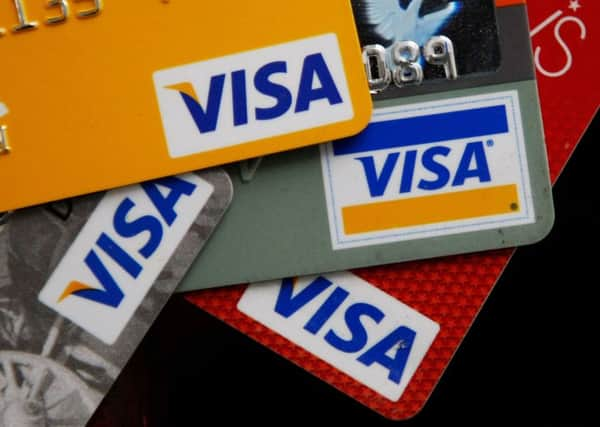Smart Money: How to avoid credit card debt


Always pay your balance in full
The most important step in avoiding credit card debt is paying off the balance every month. This way you don’t have to worry about accruing interest charges, and you can still enjoy perks such as store vouchers and cashback.
Save up for a rainy day
If you’re tempted by a credit card as a way to cover major emergency purchases, consider setting up a savings account you can access when necessary as an alternative resource. In the 2015-116 tax year, everyone over 16 in the UK can deposit £15,240 into a tax-free ISA. Easy access options allow you to withdraw funds whenever you need them, although you won’t be able to return them until the next tax year.
Don’t stockpile credit cards
Advertisement
Hide AdAdvertisement
Hide AdThe more cards you have, the easier it is to accidentally accumulate debt. If you get into debt across multiple credit cards, pick the one with the lowest balance and aim to pay it off in full first and work your way through one by one. It will help keep your credit score in good stead and give you a focus to get out of debt instead of randomly topping off different cards.
Prioritise your spending
Credit cards are useful for big, one-off purchases, which you can pay back within the agreed period. Make a list of all your monthly essentials in advance so you can avoid last minute panics and avoid becoming reliant on your credit cards on a daily basis. Also set up direct debit transfers to pay for utilities and council tax.
Pay more than your minimum
This is particularly important if you’re concerned about your future credit rating. Paying more than the minimum on your existing credit cards will show potential lenders that you’re financially stable and responsible, improving your chances of getting a loan later.
Avoid sneaky charges
Don’t get caught out by loopholes. For example, balance transfer cards are ideal for moving debts around to minimise the interest you pay, but factor in the 3 per cent fee this incurs and avoid using them for purchases, as they can carry drastically different rates. Other possible catches include charges to withdraw cash from an ATM.
Get advice
Don’t rely on debt management companies who’ll charge for a consultation. If you feel you need extra help, you can get free, independent advice in person or on the phone from organisations such as StepChange Debt Charity Scotland (0800 138 111), Citizens Advice Scotland (www.cas.org.uk or your local bureau) and National Debtline (0808 808 4000).
• Lisa Venter is social media marketing manager at Moneydashboard.com